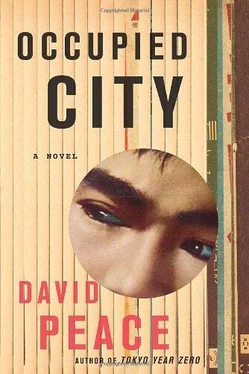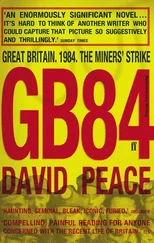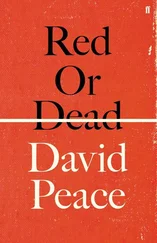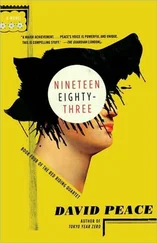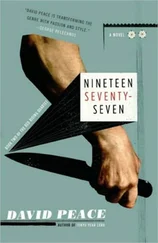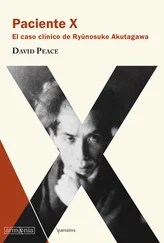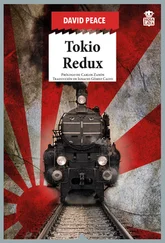While political analysis is not within the province of the present mission, I feel I would be negligent in my duty as an investigating officer if I did not point out that such diatribes against Russian intrigue stem from poorly informed as well as from thoughtful and responsible sources. The colossal effrontery against common sense is thoroughly demonstrated by such a statement as ‘Originally we had no intention of waging war against the United States. The Soviet Union has always been our future possible enemy.’ It has been my experience that confused thought and conflicting statements have permeated all my discussions with the highest Jap officers and Lt. Gen. Ishii is no exception. Of course, on the other hand, I do believe that claims about Russian BW activity can hardly be discounted without further evaluation, but it is also my belief that the Japs are also well aware that by making such claims they are telling us (or some of us) what we want to hear while, at the same time, skilfully exonerating themselves.
In regard to plague — of particular interest to me, as you are aware — Ishii made the following statements:
‘Due to the danger of it [plague], there were no field experiments with it. There were a great many field mice in Manchuria and it would have been dangerous to conduct field experiments with plague because the field mice would very easily carry the organisms and start an epidemic. We conducted experiments with plague only in the laboratory.’
I asked what kind of experiments.
Ishii stated: ‘We put rats in cages inside the room and sprayed the whole room with plague bacteria. This was to determine how the rats became infected, whether through the eyes, nose, mouth or through the skin. But the results were not too effective as we usually got only a 10 percent infection.’
‘By which route?’
‘Through the nose and also through an open wound; animals were shaved and it was found that they would become infected through the microscopic abrasions caused by the shaving. We found that the lymph nodes became inflamed and that was how we then knew if the animal had become infected.’
In response to further questioning, Ishii then went on to say: ‘The spray test was not conducted in a special chamber. However, the windows in the room were double-plated and paper was put all over the walls. The room was made as air-tight as possible and human beings did not enter the room. They conducted the test from an outside corridor. After the experiment, we sprayed formalin in the room and did not enter it for one day. We also wore protective clothing, masks, and rubber shoes. Before we touched the animals, we put the cages, the animals, and all, into a solution of creosol.’
I asked had there been any accidents.
‘Yes. One person who handled the animals after the experiment got infected and died.’
‘How about outside?’
Ishii said, ‘No.’
I then stated: ‘We have heard from Chinese sources that plague was started in Changteh, in 1941, by airplanes flying over and dropping plague material and a plague resulted. Do you know anything about this?’
Ishii said, ‘No, and anyway, it is impossible from a scientific point of view, as I thought you would have known, to drop plague organisms from airplanes.’
‘But what if rats, rags, and bits of cotton infected with plague were dropped and later picked up by the Chinese and that is then how it was to have started?’
‘If you drop rats from airplanes they will die,’ laughed Ishii. ‘There is no chance of a human being catching plague as a result of dropping organisms from an airplane.’
‘How about balloons?’
‘I would imagine balloons might be rather hard to control and navigate, wouldn’t you, Dr Thompson?’
As you can see from the above exchange, Lt. Gen. Ishii is an extremely confident man. However, Ishii — in my impression of the man — is also prone to boast about his achievements (for example, about his invention of a porcelain bomb for plague dissemination, about his water filters for field use, and an anti-dysentery pill he claims to have developed) and I believe this egotism and vanity will be his undoing.
In conclusion, and regardless of Ishii’s contention, it is evident to me from the progress that was made that BW research and development in all its phases was conducted on a large scale, and was officially sanctioned and supported by the highest military authority.
It is also evident that BW research was not confined to Pingfan and mainland China, as we have been led to believe. It is my belief that work in this field was also carried on in the Army Medical College in Tokyo. Therefore, it is impossible that the military leadership here in Tokyo was unaware of the program and that it was almost certainly conducted with the support and sanction of the highest military authority.
This leads, of course, to the inevitable (and political) question of exactly how high that sanction extended and I am aware that this is also the question uppermost in the minds (and worries) of both SCAP and Washington. In response to my direct questioning as to whether the Emperor himself was informed of BW research, Ishii replied that the Emperor was ‘a lover of humanity and never would have consented to such a thing.’
However, I strongly believe we have only scratched the surface of Ishii and his work. I am convinced that sometime soon, if we continue to question Ishii and his associates, we will be able to break him. Ishii is a proud, determined, almost ruthless individual and no one, in my experience, with such personal characteristics can fail to have made enemies. As you are aware, GHQ has received, and continues to receive, literally thousands of correspondences from disaffected Japs containing allegations of war crimes. Among these many telegrams and letters there are sure to be some which will refer to BW experiments in China and also in Japan. However, it is a slow and time-consuming process verifying each individual allegation and we simply do not have the necessary manpower at our disposal.
Finally, there are also some additional, highly important and extremely CONFIDENTIAL remarks I would like to make to you.
I took the liberty of showing the notes I had made of my interviews with Ishii and Kitano to my tame informant (the former BW engineer). As you know, it has been my experience that these Japs are simply not to be trusted (they are all good actors and accomplished liars). It was my intention therefore to verify the information I had received from Ishii and Kitano with my informant.
However, my informant gave me a startling and unexpected piece of information. He claims to have recently met with one of his acquaintances, who himself was a member of Unit 731. This acquaintance told my informant that he had personally met with Lt. Gen. Kitano, who told him that ‘just prior to the American Army inquiry [that is to say, my own interrogation of Kitano and Ishii], GHQ gave Ishii and myself [Kitano] a hearing and granted us permission to consult with each other in order that we could arrange not to contradict each other over items which were to be kept secret.’
My informant also claims that ‘the Americans knew all along that Ishii, Kitano, etc., had secretly fled back to Japan after the end of the war and they planned to make secret contact with them. Between the end of last year and the early months of this year, the Americans held secret meetings with Ishii and other ranking officers [a total of five persons] in a restaurant in Kamakura [just south of Tokyo]. During these meetings, which are known as the “Kamakura Conference,” Ishii revealed all about the experimentation and the bacteriological weapons. In return for providing the data that he had brought back from Manchuria, he asked that none of the unit members would be indicted for war crimes. The Americans accepted this condition and a secret contract was made between them.’
Читать дальше
